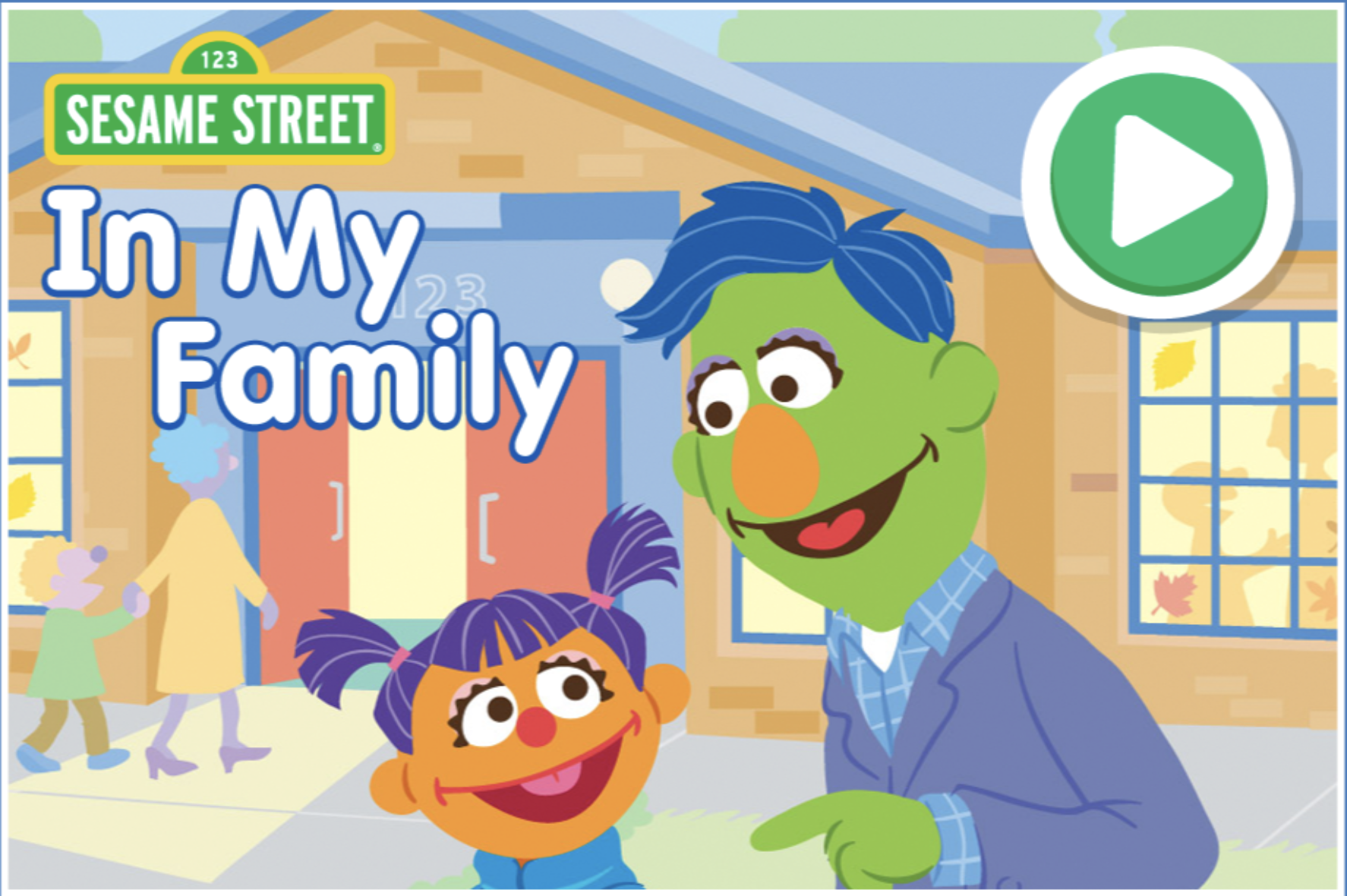Incarceration RESOURCES
Children of Incarcerated Parents
The effects on children of incarcerated parents are complex and the children are at risk of being substantially and negatively affected.
Every child responds differently when a parent gets incarcerated. However, research shows that a parent being incarcerated negatively affects a child’s emotional, physical, educational, and financial well-being.
This page provides an evolving list of resources about children of incarcerated parents that the public can use to help educate, spread awareness, and provide support. The children deserve it.
- Children of incarcerated parents are, on average, six times more likely to become incarcerated themselves.
- The most common consequence of parental incarceration appears to fall under the umbrella of antisocial behavior, which describes any number of behaviors that go against social norms, including criminal acts and persistent dishonesty.
- A child may face multiple adverse childhood experiences a child, including incarceration.
- Children of incarcerated parents are significantly more likely to be suspended and expelled from school.
- Family unity and stability are critical to a child’s lifelong health and well-being. People who are incarcerated face many barriers to employment. In the year after an incarcerated father is released, family income drops by approximately 15% from what it was before incarceration.
- Black children are 7x, and Latino children are 2.5x more likely to have a parent in prison than white children. Nationally, 1 in 4 black children has had an incarcerated parent.
- Having an incarcerated parent is a form of trauma, and children of an incarcerated parent are vulnerable to health problems and struggles.
Sources for Statistics: National Institute of Justice | Eric Martin, “Hidden Consequences: The Impact of Incarceration on Dependent Children,” March 1, 2017 and Schools not Prisons Children and Families #SchoolsNotPrisons is contributing to a growing movement for shifting public spending from punishment to education and creating solidarity among communities on the frontlines of ending mass incarceration.
KidsMates
KidsMates is a national non-profit organization that promotes resilience in the face of childhood adversity.
About the KidsMates C.A.R.E.S. Approach:
Supportive adults can help children develop resilience using the KidsMates’ C.A.R.E.S. Approach:
Create a safe environment for the child to speak freely.
Acknowledge and validate the child’s concerns.
Reassure the child that they are not alone.
Encourage active play and skill-building.
Share honest and age-appropriate information with the child.
Adverse Childhood Experiences (ACEs)
Childhood Stress
Developing Resilience
Social Determinants of Health
Structural Racism
Books About Parental Incarceration
The Silent Epidemic Statistics: Incarceration in the United States
- Almost 1 in 2 Americans have had a family member incarcerated
- The United States accounts for less than 5% of the world’s population, but almost 25% of the world’s incarcerated prisoners
- In 40 years, the U.S. incarcerated population increased by almost 500%
- Over half of the US incarcerated population are parents of minors (children under age 18)
- 5.3 million American children (under age 18) have had an incarcerated parent
The National Resource Center on Children and Families of the Incarcerated
On any given day, an estimated 2.7 million children in America have at least one parent in prison or jail.
NRCCFI is the oldest and largest organization in the U.S. focused on children and families of the incarcerated and programs that serve them.
- Disseminating accurate and relevant information
- Guiding the development of family strengthening policy and practice
- Training, preparing, and inspiring those working in the field
- Including the families in defining the issues and designing solutions
Tips to Support Children When a Parent is in Prison
Source: Healthy Children Organization of American Academy of Pediatrics
Sesame Street in Communities
The incarceration of a loved one can be overwhelming for both children and caregivers. It takes special effort to start important conversations and answer kids’ questions; especially due to the stigma. However, parents can comfort children and guide them through difficult moments just by talking. Therefore, with love and support, the family can cope with the challenges of incarceration together.
Project Avary (Now Online)
It’s no secret that mass incarceration has crippled communities and ripped families apart and that parental incarceration is a traumatic, isolating, and painful experience. At Project Avary, they help children heal from the impacts of having a parent in prison.
Project Avary believes in the power of community and relationships full of welcome and belonging to heal and empower growth. Children of incarcerated parents are united within a community where younger children connect with peers, older teen leaders, alumni counselors, and mentors—many of whom have personal experience with parental incarceration.
Free Ameelio App
Ameelio is a nonprofit, and 100 percent of the money earned goes towards supporting free family communication. In addition, you can donate to other families on the Letters mobile app by purchasing Ameelio+ Tokens. In exchange for these tokens, you can send premium Ameelio+ items, such as informational packets, song lyrics, self-help resources, and more! That is to say, your donations help Ameelio provide free mail to hundreds of thousands of people like you. Unfortunately, this service isn’t available in Texas Prisons, but they are on a mission to bring this to other facilities. However, you can do your part to help by signing the petition and spreading awareness.
Texas Child Support Resources for Incarcerated Parents
While an incarcerated parent is away, they must remain in contact with the Child Support Division. The office of the Attorney General of Texas helps parents engage with the child support program while incarcerated and when returning to the community. Therefore, to better serve incarcerated parents, the attorney general’s office partnered with criminal justice agencies and community partners.
Prison Fellowship Angel Tree
Prison Fellowship Angel Tree™ equips churches to strengthen relationships between incarcerated parents and their children and support the families of prisoners year-round.
Incarceration can strain family ties to the breaking point. As a solution, Prison Fellowship Angel Tree provides an opportunity for local congregations to extend the hope of the Gospel and enfold Angel Tree families into church life. This is done through delivering Christmas gifts on behalf of incarcerated parents, sending kids to summer camp, facilitating one-day sports camps, and more.
Most importantly, Angel Tree invites and equips churches to enfold Angel Tree families into church life, resulting in mutually beneficial relationships of encouragement, growth, and support.
Here are a couple stories about Texas families who have experienced the gifts of Angel Tree.
Prison Fellowship Restoration Series
You can give hope to prisoners as they re-enter society. Remember, no matter how far gone hope seems to be, there is always room to fight for redemption.
Prison Fellowship provides resources to equip prisoners to thrive outside the walls of prison upon their release so they can re-enter society redeemed and ready to walk in freedom.
Give now to help support Jonathan and others trying to succeed outside and inside prison walls. Your generosity is making this important work possible.

“Society says that most prisoners are coming back. But I know what’s inside of me, and I can confidently tell somebody, ‘I’m not coming back to prison.’ ” — Jonathan
Helping Youth With Incarcerated Parents Attend College and Succeed.
Yasmine is 24 years old. She founded and currently leads ScholarCHIPS to provide support to youth who have an incarcerated parent. Additionally, through these efforts she believes it also helps reduce the shame and stigma. Furthermore, as the child of an incarcerated parent, she believes in empowering youth to reach their potential through mentorship and guidance.
In their Words: 4 Young People Share Experiences with Having an Incarcerated Parent.
1 in 28 kids currently has an incarcerated parent. This video shares the stories of four young women who are dealing with having a parent behind bars.
The Benefits and Importance of Using YPAR with Youth with Incarcerated Parents
This webinar goes over the variety of roles of youth and the importance of leveraging developmental relationships. Furthermore, you will hear directly from youth about her experiences. This webinar is beneficial for researchers who conduct YPAR working with youth who have or have had an incarcerated parent.

Tip Sheet for Prison Jail Staff and Volunteers of Children of Incarcerated Parents (download)
Prison and jail staff and volunteers play an important role in making visits a positive experience for children with incarcerated parents. Staff and volunteers are the first and last individuals that children see; their support of family visits can set an important tone that parent-child relationships are valued.
Office of Justice Programs
This training video introduces and demonstrates many core principles of the Safeguarding Children of Arrested Parents Model Policy. As a result, this training serves as a template for law-enforcement agencies as they develop and/or revise policies and procedures addressing arrest processes. More importantly, mitigating the potentially traumatic impact of a parent’s arrest on children is crucial.
Office of Justice Programs
This 90-minute live webinar highlighted the Model Arrest Policy implementation and is recommended for law enforcement staff, probation officers, social services staff, youth serving organizations, and researchers. The purpose of this webinar was:
1. To highlight how a locality has instituted the International Association of Chiefs of Police (IACP) model arrest policy through collaborations (e.g., between non-profit organizations and government agencies) to protect children of arrested parents.
2. To share the experiences of a youth who has witnessed the arrest of her parent.
3. To highlight research on the impact a parent’s arrest has on children, especially those who have witnessed the arrest.
OUR CRIMINAL DEFENSE ATTORNEYS IN CENTRAL TEXAS WILL FIGHT FOR YOU
CALL 979-743-4153
Available 24/7/365
CENTRAL TEXAS ATTORNEY
GIVE US A CALL FOR A FASTER RESPONSE
979-743-4153
Phones are open 24/7 so our clients and community can always reach us.
Schedule Your Consultation
If you are unable to call, feel free to fill out this brief form and our attorney will respond to you personally on the same day.
Bigham Law Firm Offices
Fayette County Texas
717 Lyons Street
Schulenburg, Tx. 78956
Phone: (512) 718-2801
Bastrop County Texas
Chestnut St. Unit B
Bastrop, Tx. 78602
Phone (979) 743-4153
Website Design & Photography By Mandy Marketing and Marty Bigham
CENTRAL TEXAS ATTORNEY
GIVE US A CALL FOR A FASTER RESPONSE
979-743-4153
Phones are open 24/7 so our clients and community can always reach us.
Schedule Your Consultation
If you are unable to call, feel free to fill out this brief form and our attorney will respond to you personally on the same day.
Bigham Law Firm Offices
Fayette County Texas
717 Lyons Street
Schulenburg, Tx. 78956
Phone: (512) 718-2801
Bastrop County Texas
Chestnut St. Unit B
Bastrop, Tx. 78602
Phone (979) 743-4153
Website Design & Photography By Mandy Marketing and Marty Bigham



